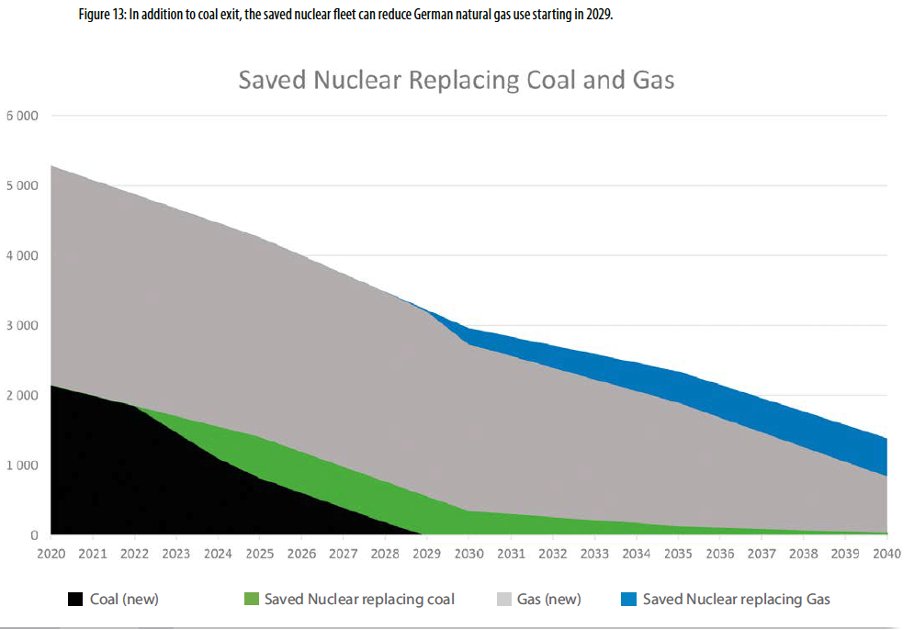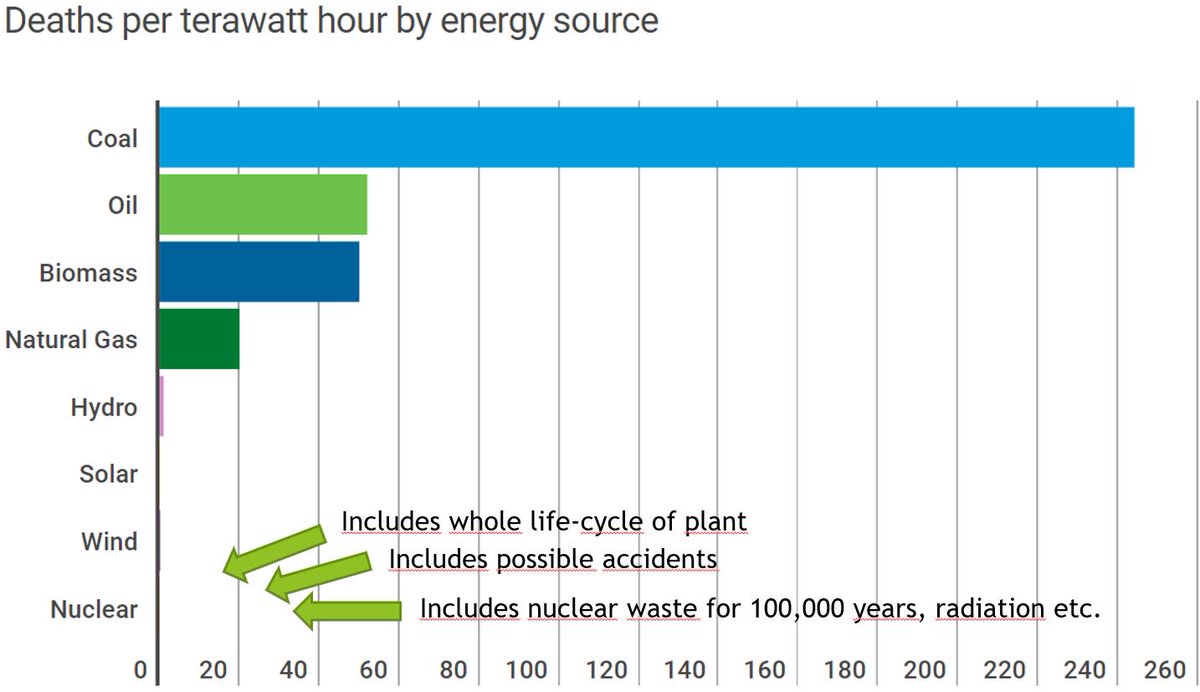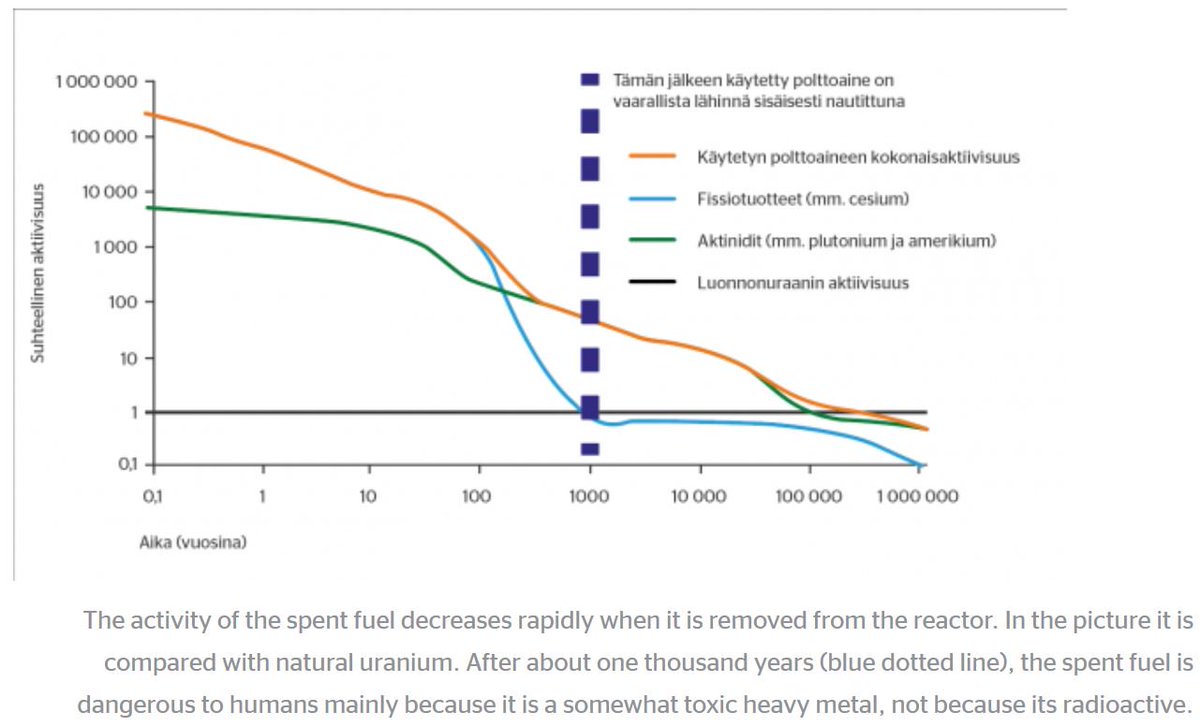
I recently finished a report ”One Billion Tons – CO2 emissions and a Faster Coal Exit for Germany.” onebilliontons.org. This is a thread of the key points and findings. Report was commissioned by @oekomoderne and done by our non-profit think tank @think_atom 1/n
The study explores the CO2 emissions that could be avoided if Germany kept their #nuclear fleet (#GER6) open and closed coal/lignite, and later fossil gas, production instead. The result is in the name of the report: #onebilliontons 2/n
The remaining nuclear reactors, or #GER6, avoid roughly 60 million tons of CO2 per year. To date, the early, political closures since 2011 have released an extra 500 million tons of CO2 (and much more in the future) as fossil fuel production has been kept running instead. 3/n
Side note: recent court rulings and tightening #climate targets make the #GER6 case even more urgent. New coal exit by 2030? If at all possible, will demand tens of gigawatts of new gas turbines, using imported fossil gas. #nuclear would help. 4/n
Since 2011 #nuclear closures, fossil gas use has increased, coal has declined as has oil. Had nuclear kept producing, coal could have declined much faster, as they play similar roles in the power system. 5/n 

Even after hundreds of billions in investment to subsidize #wind, #solar and #biomass, the German energy system is still 75% reliant on fossil fuels. Without #nuclear closures, this dependency would be lower, thou still significant. 6/n 

Even with the meager share and linear growth of RE production in Europe, the power system is getting exponentially more broken, as the number of negatively priced hours increases (means: electricity=waste). 7/n 

The German Energiewende seems to go directly against IPCC, which had nuclear grow 4-fold (AVG) by 2050 in their 4 main scenarios in their Report on 1.5C of warming (IPCC 2018). This reality needs to be pointed out. 8/n 

Oh, and #nuclear is definitely low carbon, even if some fringe studies have managed to come up with more fantastical and bigger numbers (they are cherry picked and based on non-relevant or false assumptions). 9/n 



#Nuclear takes up much less land, uses less materials (and mining) than wind, solar, batteries. It has a smaller environmental footprint and less effect on #biodiversity than eg. wind and solar + backup. Nuclear is 1 of our safest #energy source. 10/n 

Obviously, if we set our minds to it and have good policies in place, nuclear can be (and has been) built much cheaper and faster than the handful of recent First-of-a-Kind projects that have faced many problems. 11/n 



MAIN SCENARIO. We used Agora Energiewende Carbon Neutral Germany 2050 as our base case to build on. Our major problem with it is the need to drastically curtail German energy use by over half by 2050. 12/n 

The current #GER6 #nuclear fleet, with 1-2 year closures for maintenance and refueling between 2022-2024, would enable a coal exit 10 years faster than the base scenario by replacing coal/lignite. 13/n 

After coal exit by end of 2028, #GER6 nuclear fleet could start replacing some of the imported natural gas as well, replacing roughly 1/3 of it in 2040. 14/n 

Cumulatively, #GER6 nuclear fleet would avoid roughly #onebilliontons of CO2 emissions by 2045, by replacing coal and fossil gas use. 15/n 

Economic implications. Long term operation of nuclear is one of the cheapest ways to “add” low carbon energy production, at 33-45€/MWh (IEA). The EEG surcharge that pays for RE feed-in-tariffs is roughly 100€/MWh of RE produced. 16/n
European Emissions trading system (ETS) has seen CO2 prices skyrocket to well above 50€/tCO2. #GER6 would save Germans €3 Billion/year just from ETS at that cost. 17/n
Also, Germany’s nuclear exit will cause over €10 billion / year in health costs and lost productivity due to sickness from pollution and other factors. These costs are human suffering monetized. 18/n
More dramatically, ~250,000 premature deaths would be avoided by 2100, most due to excessive heat, and some due to air pollution, if #GER6 was kept operational and coal/gas closed instead. 19/n 

All sources are in the study (ENG and GER). Here’s a final pic from our IPCC-Compliant "Abundance instead of scarcity"-scenario where Germany starts a new advanced nuclear program, decarbonises and avoids need to drastically curtail energy use. 20/20 onebilliontons.org 

• • •
Missing some Tweet in this thread? You can try to
force a refresh





